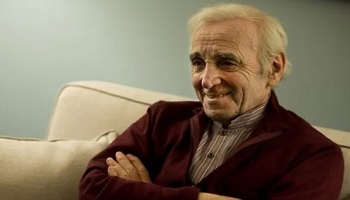
Ian MacKaye’s Net Worth The Financial Journey of a Punk Rock Pioneer and DIY Icon
Ian MacKaye, the legendary frontman of influential punk bands Minor Threat and Fugazi, is more than just a musician. Known for pioneering the DIY (do-it-yourself) ethic, his impact on punk culture is profound and enduring. While financial wealth has never been a goal for MacKaye, his approach to music, business, and life has resulted in a surprising amount of financial stability. This article explores Ian MacKaye’s net worth, his unique business philosophy, and how his uncompromising dedication to independence shaped his financial journey.
Early Life and the Birth of a Punk Ethic
Born on April 16, 1962, in Washington, D.C., Ian MacKaye grew up in an environment that encouraged curiosity and independence. From a young age, he was drawn to music, finding inspiration in bands like The Stooges and The Ramones. The late 1970s punk scene, with its raw energy and anti-establishment ethos, resonated with MacKaye, and by the early 1980s, he was ready to make his own mark.
MacKaye co-founded Minor Threat in 1980, a hardcore punk band that helped shape the sound of American punk. The band’s fast, aggressive style and straight-edge philosophy—rejecting drugs and alcohol—attracted a loyal following. Minor Threat didn’t make MacKaye rich, but it laid the foundation for his DIY ethic and demonstrated the possibility of maintaining creative control over one’s work.
Founding Dischord Records and the DIY Ethic
In 1980, MacKaye co-founded Dischord Records with Jeff Nelson, his bandmate from Minor Threat. Dischord Records was born out of necessity, as there were few avenues for punk bands to release their music independently at the time. MacKaye and Nelson used their own funds to press records, distribute them, and promote their music—keeping total creative control over their work. Dischord Records became an iconic independent label, synonymous with DIY ethics and a non-profit philosophy.
The label produced records for many influential punk bands, including Rites of Spring, Embrace, Government Issue, and Dag Nasty. Dischord’s success can be attributed to its commitment to fair pricing and transparency. Unlike major labels, Dischord focused on low prices for fans and fair compensation for artists. Despite this, or perhaps because of it, Dischord managed to thrive, and by keeping overhead low, MacKaye built a financially sustainable label.
Although Ian MacKaye’s goal was never personal wealth, Dischord’s longevity and success have contributed to his financial stability. Dischord’s catalog, now spanning over 40 years, remains a valuable asset, providing consistent revenue from physical and digital music sales.
The Success of Fugazi and Financial Independence
In 1987, MacKaye co-founded Fugazi, a post-hardcore band known for its intricate sound and socially conscious lyrics. Fugazi quickly gained a massive following, both in the United States and internationally, despite refusing to adhere to the conventional music industry model. The band rejected high ticket prices, refused to play at venues charging excessive fees, and never relied on corporate sponsorship or marketing. Tickets to Fugazi shows were famously capped at $5, a decision that prioritized accessibility over profit.
Despite these limitations, Fugazi achieved significant commercial success on their own terms. Their albums, including Repeater (1990) and In on the Kill Taker (1993), sold hundreds of thousands of copies—remarkable for an independent band that shunned traditional promotion. By retaining full control over their music rights and distribution, Fugazi kept a larger share of the revenue than artists signed to major labels typically would.
MacKaye’s income from Fugazi and Dischord Records added to his financial security, though he maintained a modest lifestyle, in line with his values. By rejecting excess and focusing on sustainability, MacKaye has managed his finances prudently, ensuring that he has enough resources to continue his work without compromising his beliefs.
Beyond Fugazi: Later Projects and Community Engagement
After Fugazi went on hiatus in 2003, MacKaye continued to contribute to the punk and indie music scene, both as a musician and producer. He formed a new band, The Evens, with musician Amy Farina. The Evens embraced a similar DIY approach, with intimate shows and self-produced music. Although The Evens never achieved the same commercial success as Fugazi, they provided MacKaye with a steady income stream and a creative outlet.
MacKaye has also been involved in producing and mentoring new artists, extending the influence of his DIY philosophy to younger generations. His production work and mentorship, often done through Dischord Records, have not only fostered new talent but also contributed modestly to his earnings.
Dischord Records and the Changing Music Industry
With the rise of digital music, many independent labels have struggled, but Dischord Records has managed to adapt without losing its core principles. Dischord embraced digital platforms cautiously, ensuring that their pricing remained fair. By making Dischord’s extensive catalog available on streaming services, MacKaye ensured continued income without straying from his values.
Streaming royalties, while lower than traditional sales, have allowed Dischord to stay relevant and financially viable. MacKaye’s decision to preserve the label’s catalog in both physical and digital formats has helped maintain a steady income, and he continues to oversee Dischord’s operations, keeping costs low and the label self-sustaining.
Philanthropy and Community Involvement
MacKaye has always believed in giving back to the community, though he is notably private about his charitable work. He has supported numerous causes and local initiatives, particularly those related to music education, free expression, and social justice. While his contributions may not add directly to his net worth, they demonstrate his commitment to his values and his desire to make a positive impact.
Additionally, MacKaye has actively spoken out about issues within the music industry and beyond, advocating for fair treatment of artists and workers. His voice continues to resonate, inspiring a new generation of musicians to prioritize ethics and community over profit.
Estimated Net Worth and Financial Overview
Estimating Ian MacKaye’s exact net worth is challenging due to his private nature and the independent nature of his career. However, sources estimate that his net worth is around $5 million, which reflects his decades of work in the music industry, his ownership of Dischord Records, and Fugazi’s commercial success.
Here’s a breakdown of the key components of his financial profile:
Earnings from Fugazi and The Evens – Album sales and tours contributed significant revenue, with Fugazi’s extensive catalog providing royalties even after the band went on hiatus.
Dischord Records – As the co-founder and owner of Dischord, MacKaye retains control over a large catalog of influential punk and indie records, providing a steady income stream.
Production and Mentorship – Additional earnings from producing records and guiding young bands have also added to his financial stability.
Streaming and Digital Sales – By making Dischord’s catalog available digitally, MacKaye has ensured a consistent revenue stream from new listeners.
Despite his comfortable financial position, MacKaye’s modest lifestyle and commitment to the DIY philosophy set him apart from typical industry figures.
Legacy: Influence on Punk Culture and DIY Ethics
Ian MacKaye’s legacy extends far beyond his financial success. He is a pioneer of the DIY ethic, demonstrating that it is possible to build a successful career without compromising one’s values. His dedication to independence and integrity has inspired countless musicians and independent artists to pursue careers on their own terms.
MacKaye’s impact on punk culture is undeniable. Through his work with Minor Threat, Fugazi, and Dischord Records, he has helped define what it means to be truly independent in the music world. His commitment to fair pricing, artist rights, and community engagement has set a standard for ethical business practices that resonate well beyond the punk scene.
Conclusion
Ian MacKaye’s net worth is a reflection not only of his career achievements but also of his dedication to living by his principles. From the DIY roots of Dischord Records to the global success of Fugazi, MacKaye has shown that financial stability can be achieved without sacrificing one’s values. His journey stands as a testament to the idea that success in the music industry doesn’t have to come at the cost of artistic integrity or community focus.
For fans and aspiring musicians alike, MacKaye’s story is both inspiring and instructive, reminding us that wealth can be measured in more than just dollars. His legacy as a musician, mentor, and advocate for change is as enduring as the songs he wrote, ensuring that his influence on punk culture and DIY ethics will continue for generations.



